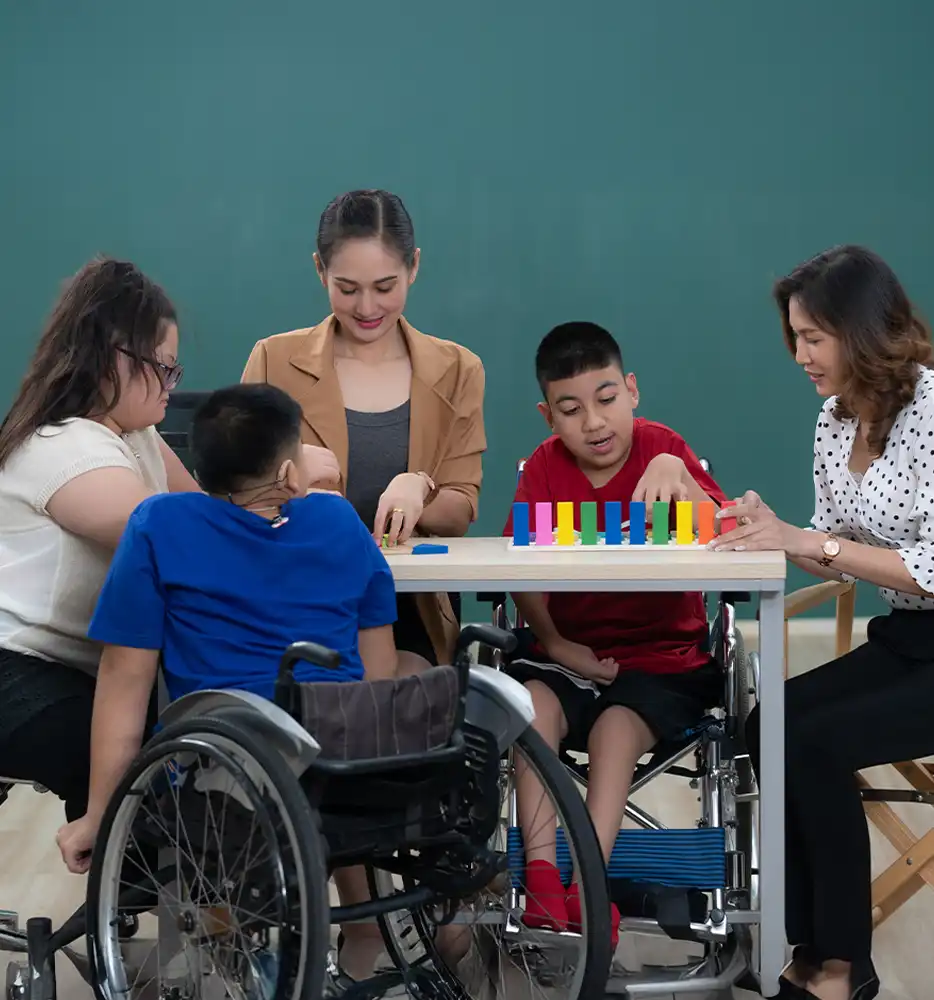

MA in School Counseling
Master of Arts in Counseling, School Counseling
Guide and Inspire Students with a Career in School Counseling
The Master of Arts in Counseling with a School Counseling emphasis at UT Permian Basin prepares students to become certified Professional School Counselors in Texas. This program meets all Texas Education Agency (TEA) educational requirements, and graduates are eligible to apply for state licensure to begin making a difference in the lives of students across diverse educational settings.
Take the Next Step in Your Journey
Learn about the Graduate Studies programs and requirements.
Grad Studies Admission and Deadlines
Find application requirements, deadlines, and everything you need to start your graduate journey at UTPB.
MA in Counseling, School Counselor Degree Requirements
Explore the full list of courses, credit hours, and research components needed to complete the MA in Counseling at UTPB.
What You'll Learn in the School Counseling Program
Students who complete the school counseling emphasis will meet TEA educational requirements for Professional School Counselor certification. Students who complete the requirements for school counseling will be eligible to apply for state licensure.
Students completing the program with a specialization of school counseling will demonstrate knowledge of:
- The roles, functions, credentialing and professional identity of professional school counselors.
- Policies, laws, legislation, and other issues relevant to professional school counselors in a culturally diverse society.
- Roles of a counselor in school settings, organizational and legal dimensions of a school setting and evidence-based interventions, consultation, education, and outreach.
- Skills to work with all students K-12 individually or in groups to address their personal, social, academic and career concerns.
- Competencies necessary to conduct research and use assessment in order to develop, implement, and maintain a comprehensive developmental guidance program.
- Program development and delivery to diverse populations, including prevention, support groups, parent education, career/occupational information and counseling, and self-help.
- Effective strategies for promoting client understanding of and access to community resources, and modalities for initiating, maintaining, and terminating counseling services with diverse populations.
Degree Requirements
To earn the Master of Arts in School Counseling, students must meet the following requirements:
- Complete a minimum of 60 Credit Hours – Includes both core and school counseling-specific coursework.
- TEA Certification Preparation – Meets Texas Education Agency requirements for Professional School Counselor certification
- Two Years of Teaching Experience – Required prior to pursuing this specialization
- Practicum and Internship – Supervised field experiences in school settings
- Comprehensive Examination – Must be passed to complete the program
- Minimum GPA of 3.0 or higher
For the most current and detailed information, please refer to the official UTPB Graduate Catalog.
Learn More about Clinical Coursework
The required clinical coursework includes a practicum and internship experience that will provide students with the opportunities to practice counseling skills under the supervision of a qualified professional counselor. The practice component will give students the opportunity to apply what they’ve learned in class in a real-life setting.
Practicum
Students will complete 100 hours under the direction of a qualified supervisor, 40 of which are direct service hours. Of those 40, students are expected to accrue at least 5 hours of individual counseling and group counseling each. The student will meet with the supervisor on a weekly basis to review work and professional development. Students will be evaluated throughout the semester by their supervisor(s) and instructor.
Internship
Students must complete their practicum before they can participate in an internship. Each student will complete 300 hours per semester under the direction of a qualified supervisor, 120 of which are direct service hours. Of those 120, students are expected to accrue at least 10 hours of individual counseling and group counseling each. The student will meet with the supervisor on a weekly basis to review work and professional development. Students will be evaluated throughout the semester by their supervisor(s) and instructor.
What are Candidate Examinations?
Counselor Preparation Comprehensive Examination (CPCE)
The Counselor Preparation Comprehensive Examination (CPCE) is a national exam that is designed as a summative evaluation that measures the professional knowledge students have obtained during their counselor preparation at UT Permian Basin.School Counseling Practice Exam
To be eligible to take the TExES exam for school counselor, candidates must pass the practice representative exam. Students must pass this exam before entering COUN 6393 Internship II. Upon passing this practice exam, the Certification Specialist will release a student to test in the online TEA system and will send the student instructions for registration in the TEA/ETS online systems.
| Criteria | Regular Admission | Conditional Admission |
|---|---|---|
| Bachelor’s Degree | Required from an accredited college or university | Required from an accredited college or university |
| GPA Requirement | 3.0 or better in the last 60 credit hours of undergraduate coursework | Between 2.5 and 2.99 in the last 60 credit hours |
| Personal Statement | 600-word statement outlining your background, goals, and reasons for graduate study at UTPB | Same as Regular Admission |
| Letters of Recommendation | Three letters (one may be replaced with honorable military discharge documentation) | Same as Regular Admission |
| Additional Materials | None | At least one: - Written explanation of GPA and academic support plan - Personal interview (phone or face-to-face) |
| Review Process | Holistic review considering academic and personal qualifications | Holistic review considering additional socioeconomic, family, and geographic factors (per Texas Education Code Section 51.842) |
Earn your Behavioral Health master's degree for free!
Make an Impact at UTPB and earn your master's degree for free. Gain the knowledge, skills, and real-world experience needed for a fulfilling career in social work, counseling, or psychology. Make an immediate impact in your community.
Learn MoreDegree Roadmap
Get all the details on our Counseling program, including admission requirements, financial considerations, class requirements, and more.
View Academic CatalogMore from the Department of Counseling
Explore everything Counseling has to offer at UTPB!
Counseling Program






























